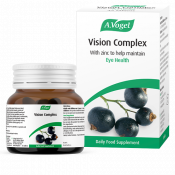Why are you more vulnerable to pink eye in winter?
When people think of conjunctivitis or ‘pink eye’ the chances are they assume that the summer is the worst season, with allergens such as pollen being particularly widespread, not to mention UV radiation and other irritants. However, winter can also present a range of problems, with bacterial and viral conjunctivitis coming more into the forefront.
These two types of conjunctivitis can be difficult to differentiate, but viral conjunctivitis is the more common of the two, usually affecting older children or adults while bacterial conjunctivitis is less common and found more in young children. Both are highly contagious, though, particularly during winter.
This is because of adenoviruses. You’ve probably experienced an adenovirus before – the common cold is counted as an adenovirus, although there are 50 different strains and, unfortunately some can affect your eyes. In fact it’s estimated that adenovirus are responsible for around 65-90% of all cases of viral conjunctivitis.1
As you probably know all too well, colds and flus are particularly rampant during the winter months and it doesn’t take much to contract the virus.
1https://patient.info/doctor/infective-conjunctivitis-pro
What you should be watching out for
So how can a case of the common cold turn into conjunctivitis? Quite easily actually! The virus is extremely contagious and can be spread from hand to eye contact or sometimes it can even travel up your tear ducts and into your eyes.
The virus is normally contagious for around 10-12 days2 and can last for 1-3 weeks. Viral conjunctivitis also presents a number of unpleasant symptoms, such as:
- Watery discharge
- Itchiness
- Redness
- Light sensitivity
- Blurred vision
Fortunately, there are a number of preventative steps you can take to avoid pink eye during the winter months, here are a few of my favourite tips.
2https://emedicine.medscape.com/article/1191370-overview
Support your immune system
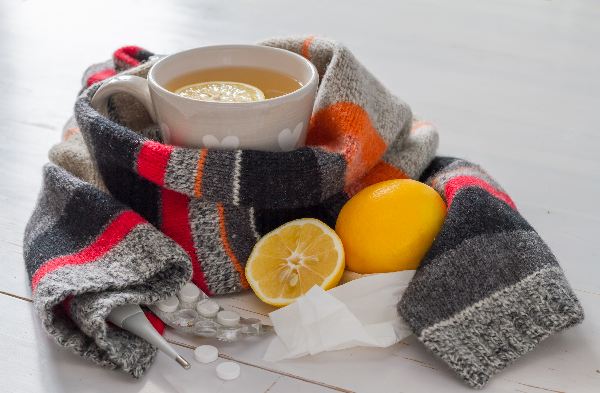
Adenoviruses, such as the common cold, will find it easier to permeate your body if you have a weak immune system so it’s vitally important that you do some maintenance work. Focus on getting as many immune-boosting vitamins into your diet as possible – vitamins A, C & D – and keep hydrated.
Our immune system expert, Dr. Jen Tan, recently wrote a piece entitled ‘Great winter meals for immune health’ which I would highly recommend checking out for some inspiration. You could even include a vitamin C supplement in your diet, such as our Nature-C chewable tablets, which are a great option for chi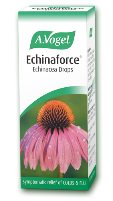 ldren if they are over the age of 6.
ldren if they are over the age of 6.
However, if you’re over the age of 12, you could try our Echinaforce. Prepared using extracts of organically grown Echinacea, a herb traditionally used to support healthy immune function, this remedy is enormously popular with our customers at this time of year. It comes in a variety of different forms, from tablets, to drops to chewables, so you should find a form that suits you.
![]()
“Keeps me from catching colds and is useful when my sinuses flare up.”
Wash your hands regularly
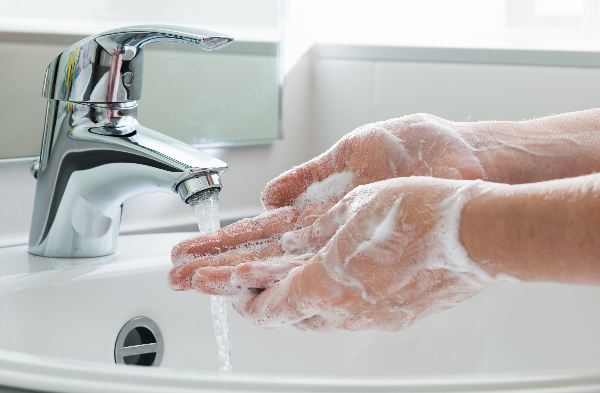
It might sound like a small step but little precautions always go a long way. Throughout the day your hands will come into contact with germs and it is possible to spread a virus to your eyes via your fingers.
Washing your hands regularly can help minimalise this possibility, especially if you’ve been around someone who is already infected with an adenovirus. It may also be worthwhile trying to avoid rubbing or touching your eyes just in case.
Of course, repeatedly scrubbing your hands can have a less than desirable effect on your skin so remember to us warm, not scalding water, and try a natural hand wash that isn’t so polluted with harsh chemical irritants. Our friends over at Jan de Vries offer a variety of organic and cruelty-free hand washes that you may find to your liking, such as Ecover’s Citrus Hand Soap.
Keep your eyes moisturised
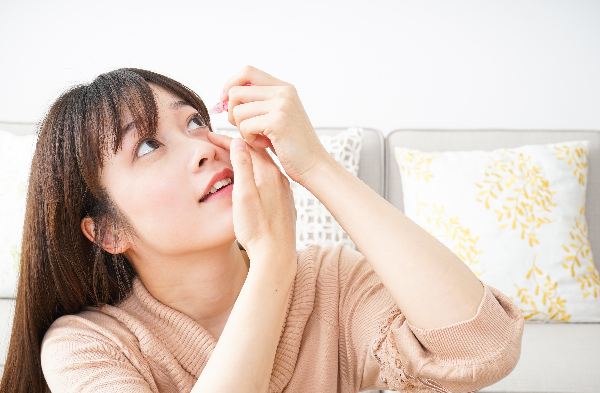
Winter can be a very difficult time for your eyes in general and it’s easy for them to 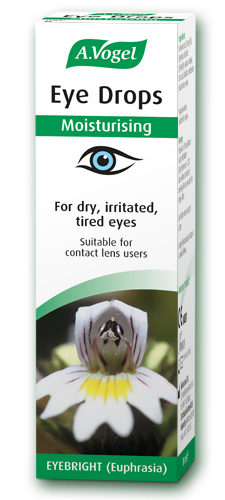 become dehydrated thanks to a combination of cold air from outside and dry, hot air from your central heating systems.
become dehydrated thanks to a combination of cold air from outside and dry, hot air from your central heating systems.
However, keeping your eyes lubricated and moisturised is extremely important, especially if you’re trying to avoid irritation. That’s why I’d recommend using natural eye drops such as our Eye Drops which contain extracts of Euphrasia (eyebright).
Soothing for dry eyes with 1mg of ultra-moisturising hyaluronic acid, the unique design of the bottle keeps the contents sterile without any need for preservatives. You can even use these with your contact lenses!
Get plenty of rest

At this time of year, it’s easy to be constantly on-the-go, with so much to plan and so much to do. Even if you do feel a bit under the weather, the chances are you might brush your symptoms off and try and get on with things anyway. This approach isn’t doing you any favours though and it certainly isn’t helping your immune system.
That’s why I’d recommend trying to take things easy and minimalizsing any stress. Set aside some ‘me-time’ every day and unglue yourself from your mobile phones and tablets. Get plenty of good-quality sleep and try to spend some time outside every day – not only does spending time outdoors boost your mood, it can also help your body to synthesise vitamin D, which is crucial for your immune system!
Think about your make-up
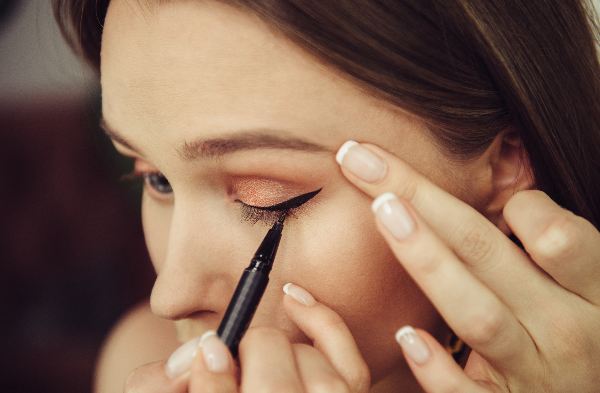
Liquid eyeliner and mascara might look good but you’re probably aware sometimes they definitely don’t feel good for your eyes. If you want your eyes in tip-top condition, I would consider going easy on your eye make-up or at least opt for more natural, organic cosmetics that won’t contain the same amount of artificial colours, preservatives and toxins.
It’s also crucial that you make sure you are cleaning your make-up brushes regularly. If not, they can easily become a breeding ground for bacteria and other pathogens, which will then come into contact with your eyes! It’s also important that you try to avoiding sharing your make-up with other people – this might make you feel a bit ungenerous but the truth of the matter is that sometimes, other people can be far too generous with their germs!
What if I contract viral conjunctivitis?
If you do start to exhibit any symptoms of viral conjunctivitis, I would speak to your GP or doctor as soon as possible and they will be able to prescribe a course of treatment. In most cases viral conjunctivitis, providing it is diagnosed quickly, won’t have any long-term repercussions for your eyes or vision.







